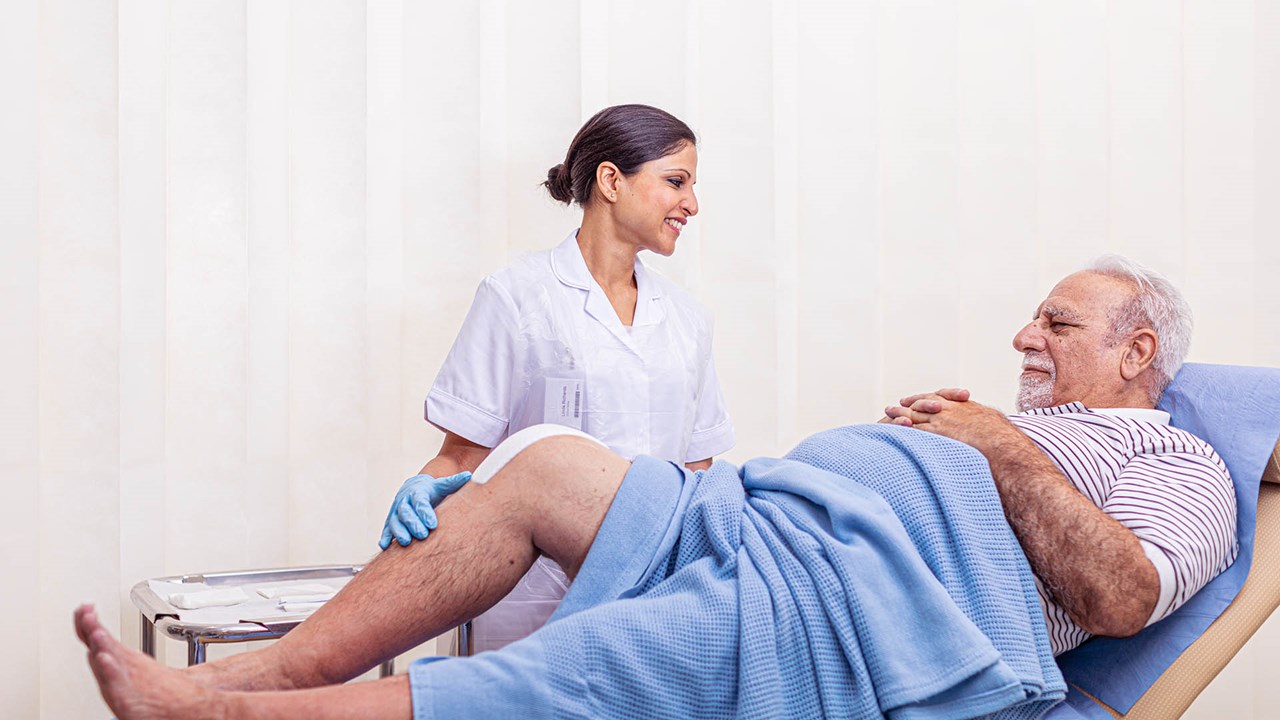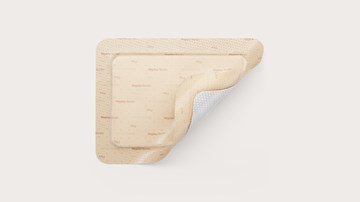Reducing pain and trauma for patients
Since we launched the world’s first gently adhering silicone dressing in 1989, Mölnlycke has helped to relieve pain and suffering for millions of patients around the world. Today, we continue to innovate, with dressings that stay on longer and enable patients to move more easily, for added comfort and enhanced healing.

It was the sight of patients with chronic wounds crying out in pain that first led inventor Thomas Fabo to look for an alternative to traditional dressings,’ explains Global Marketing Manager Magnus Enerbäck. ‘Through trial and error, his research eventually led to Mepitel®, the world’s first gently adhering silicone contact layer. We call the adhesive technology Safetac® and in the 30 years since, Mölnlycke has sold over four billion dressings with Safetac.’
Dressings with Safetac don’t stick to the wound or damage skin, so they minimise pain at dressing change for people with wounds which can be slow to heal and highly sensitive.
Listening to clinicians and patients
‘Making products that improve quality of life for patients informs everything we do in wound management,’ says Magnus. ‘It comes from listening to clinicians and patients, understanding their needs and requirements, and using that knowledge as the foundation for new technologies and practices.’
Customers told Mölnlycke that they needed dressings that could stay on difficult areas of the body such as the armpit or the knee. ‘We used that insight to develop Flex® technology, which enables dressings to stay on longer,’ says Magnus. ‘Flex moves with the body, enabling patients to move normally through everyday activities without worrying whether their dressing might come off.’
Supporting awareness and education
As part of our continuing commitment to improving health outcomes, we support clinicians with professional education, helping to ensure they have the knowledge and skills to deliver patient-centred wound care.
‘Pressure ulcers are one of the most common and distressing hospital-acquired conditions and a specialist area of focus for us,’ Magnus explains. ‘Every November, we take part in International Stop Pressure Ulcer Day, and we recently held a series of webinars with leading experts offering practical guidance on how to prevent them.’
Mölnlycke has also developed a partnership with Debra, the charity that supports people affected by the rare skin condition Epidermolysis bullosa (EB). ‘They call EB the worst condition you’ve never heard of,’ says Magnus, ‘And it is. We supported Debra’s activities during EB Awareness week and also ran a series of roadshows in Saudi Arabia to help clinicians there understand how to manage the condition.’
Mölnlycke is committed to reducing pain and trauma into the future. As we move into 2020 and beyond, we will continue to look for new solutions that help our customers provide good health for all patients with wounds – and new solutions to prevent wounds from occurring.
This story was first published in the Sustainability report 2019. Read the full report here.






